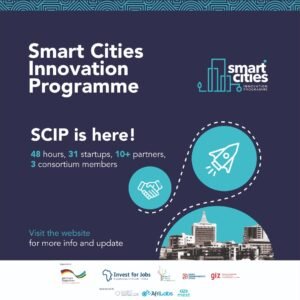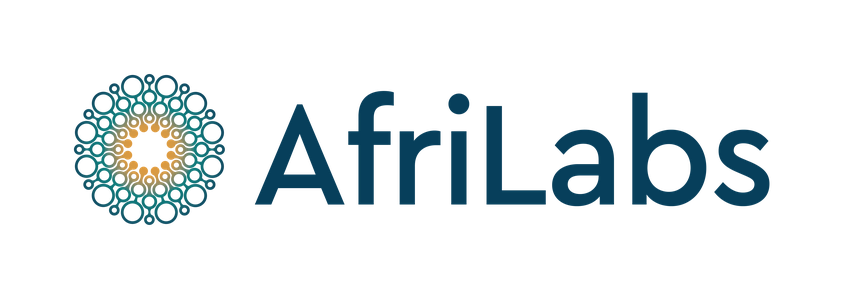Africa is rapidly urbanising. The United Nations predict that Africa’s population will grow faster than in any other part of the world, with over half of the continent’s populace residing in urban areas by 2050. To direct this rapid urban growth, technological solutions play an increasingly important role. Smart cities and communities, as evidenced in large-scale pilot projects in Nigeria, Kenya and Rwanda, can help ensure Africa’s urban future is socially inclusive and green.
In face of this endeavour, the Rwandan Ministry of ICT and Innovation and the Deutsche Gesellschaft für Internationale Zusammenarbeit (GIZ) GmbH – on behalf of the German Federal Ministry for Economic Cooperation and Development (BMZ) – launched the Smart Cities Innovation Programme (SCIP) on 16-17 September 2021 together with multiple local and international partners, including Siemens, Volkswagen, Amazon Web Services, Jasiri, Viktoria Ventures and more.
Over six months, the SCIP supports African start-ups to scale innovative products which can boost the potential of urbanisation, ensuring smart cities achieve inclusive and sustainable economic growth. By scaling innovations for smart cities, the programme concretely contributes to Africa’s urban transformation in line with the Sustainable Development Goals. The SCIP uses Rwanda’s pilot initiative towards green urbanisation, Green City Kigali, as an application case for smart city solutions in Kigali. By testing and adapting their solutions under realistic market conditions start-ups work on a viable business opportunity and explore the potential of the Rwandan market.
During the official launch, Permanent Secretary of the Ministry of ICT and Innovation, Yves Iradukunda, underlined the current relevance of the SCIP: “The programme increases opportunities for talents from across Africa and especially in Rwanda. It helps us in engaging and involving partners to scale smart solutions that can ultimately transform the continent’s cities for sustainable economic growth.”
Prior to the official launch, 31 start-ups were selected out of more than 300 innovators that responded to the call for applications issued from April to May. The selected start-ups are grouped in three tracks addressing common topics of smart cities: Cleantech & Smart Housing, Smart Mobility and Fintech for Affordability.
The selected start-ups across each track are:
Scrapays, Nigeria; Koolboks, Nigeria; Urbany Africa, Rwanda; Gas360, Nigeria; Dove Air, South Africa; EcoPlastile, Uganda; Messibat, Ivory Coast for the Cleantech & Smart Housing track.
Kiri EV, Kenya; Mazi Mobility, Kenya; Digital Blind Walking Stick, Rwanda; Instadriver, Kenya; Optimalogistic, Tunisia; Gura Universal Link, Rwanda; BasiGo, Kenya; Smatbeba, Kenya; Transport for Cairo, Egypt; EWarren Financial Services, Côte d’Ivoire / Canada; e-safiri, Kenya; Tuverl, Zimbabwe / Kenya; KaCyber Security Tech, Uganda; Expendo!, Kenya; STES Group Limited, Rwanda for the Smart Mobility track.
Angle Dimension, Malawi, Zambia Botswana; Cladfy, Kenya; Cofundie, Ghana & Nigeria; Digiduka, Kenya; Flow, Uganda; Insure Pay, Zambia; Mopay, Rwanda; Naa Sika Micro Savings, Ghana; Payclide, Uganda for the Fintech for Affordability track.
These start-ups will receive six months of holistic support including virtual and physical training, individual coaching and mentoring from seasoned experts. Furthermore, they get access to the SCIP’s corporate and public partners as well as investors, allowing for extensive networking and matchmaking. Over the course of the programme, start-ups and partners will build long-lasting relationships to grow each start-up and jointly build Africa’s urban future.
The Smart Cities Innovation Programme is part of the Special Initiative on Training and Job Creation – also operating under the brand Invest for Jobs – and the Tech-Entrepreneurship Initiative “Make-IT in Africa” implemented by GIZ on behalf of BMZ.
The Programme’s implementation is supported by Luvent Consulting, AfriLabs and MEST.
About GIZ:
As a service provider with worldwide operations in the fields of international cooperation for sustainable development and international education work, GIZ works with its partners to develop effective solutions that offer people better prospects and sustainably improve their living conditions. GIZ is a public-benefit federal enterprise and supports the German Government and a host of public and private sector clients in a wide variety of areas, including economic development and employment promotion, energy and the environment, and peace and security.
About the Special Initiative on Training and Job Creation:
Under the Invest for Jobs brand, the German Federal Ministry for Economic Cooperation and Development (BMZ) has put together a package of measures to support German, European and African companies in investment activities that have a high impact on employment in Africa. The Special Initiative on Training and Job Creation – the official title – offers comprehensive advice, contacts and financial support to overcome investment barriers. The development objective is to team up with companies to create good jobs and training opportunities in the partner countries, of which there are currently eight, and to preserve them during the Covid-19 pandemic. The aim is also to improve local working conditions. The Special Initiative is implemented by GIZ and KfW, among others. Further information is available at www.invest-for-jobs.com.
About Make-IT in Africa:
Make-IT in Africa believes in African innovation and digital technologies for a green and sustainable development. In close collaboration with start-ups, local innovation enablers and political partners, it empowers entrepreneurial and innovation ecosystems. Together it aims to strengthen an environment in which the full potential of digital innovation can unfold.
Deutsche Gesellschaft für Internationale Zusammenarbeit (GIZ) GmbH implements the project on behalf of the German Federal Ministry for Economic Cooperation and Development (BMZ).
